|
|
|
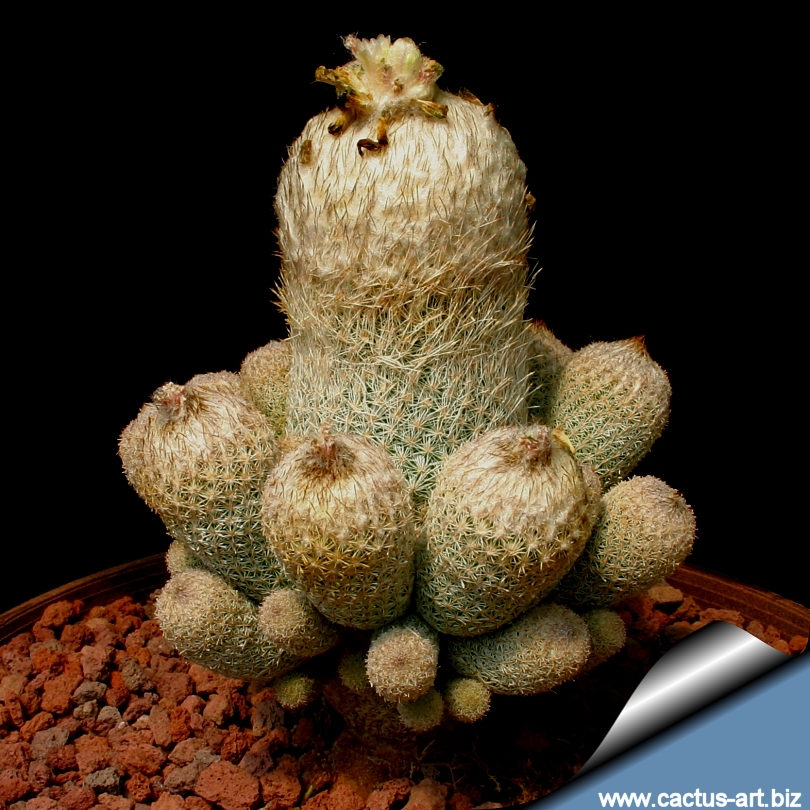
Epithelantha micromeris var.
dickisoniae
|
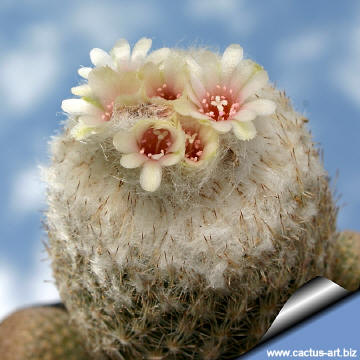 |
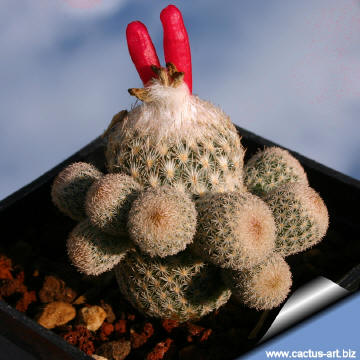 |
|
. |
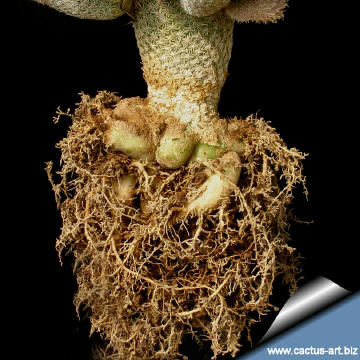 |
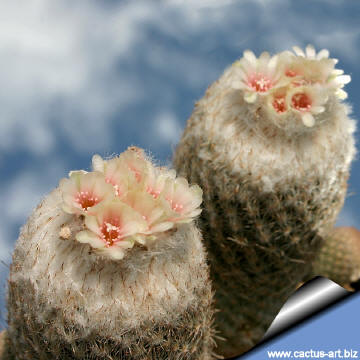 |
|
. |
 |
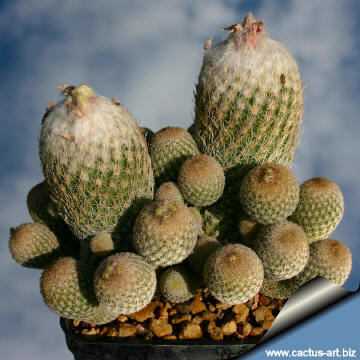 |
|
. |
|
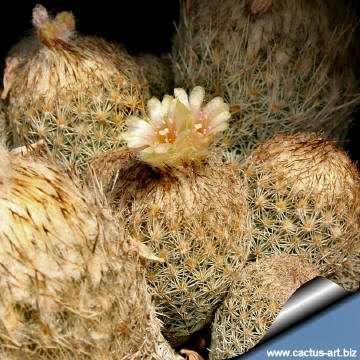 |
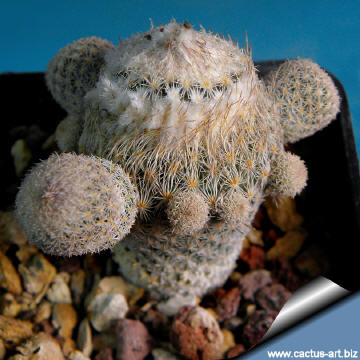 |
|
Apical spines in mature plants take a reddish tinge, especially if
wet. The flowers are small and cream-pink. |
|


Advertising
|
|
|
|
|
Family:
Cactaceae (Cactus
Family) Epithelantha dikisoniae
Synonyms:
- Epithelantha micromeris var. dickisoniae
- Epithelantha greggii var. dikisoniae
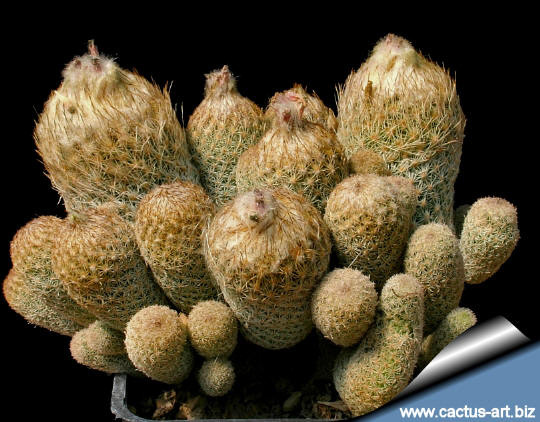
A old specimen
|
|
Description: E. micropmeris var. dickisoniae is a minute clustering cactus
of doubtful status (but very appreciated in cultivation), it shows
similarities with
E. micromeris polycephala and
Epithelantha pachyrhiza.
Stem: Finger-like, becoming somewhat
elongated when old, branching basally.
Spines: 30-40, whitish, all
radials, turning to a grey-reddish or brownish tinge in
adult plant's
crown.
Roots: Tuberose
Flowers: Small, cream-pink coloured, they start to open from April
onwards, over a longer time. Later in summer they form
oblong red
fruits.
|
|
|
|
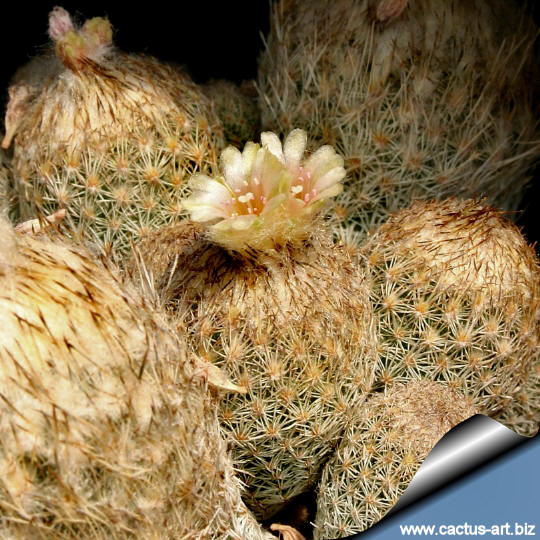
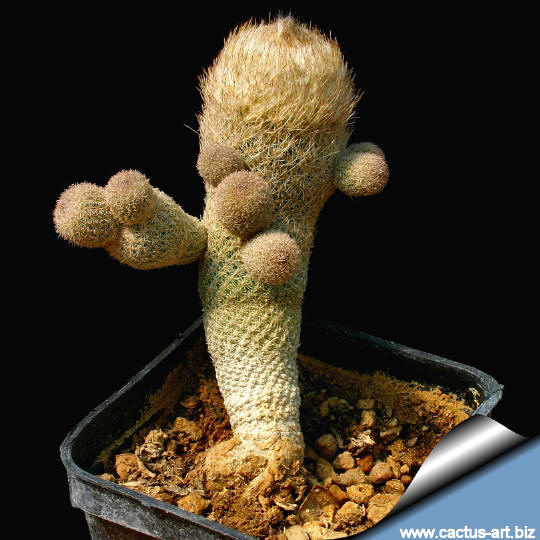
Cultivation: Although
regarded as a choice and difficult plant in cultivation, it is relatively
easy. It needs a soil mix which is particularly well draining (because rot prone). Water
sparingly and keep perfectly dry in winter. Hardy to -7°C
Sun Exposure: Light shade to full sun.
Propagation: It can be reproduced both by seeds and cuttings, but
it is sometime grafted because slow to grow on its own roots. Older
specimens shoot
tillers from under tubercles,
so they can be grafted, which is a much easier way of propagation than
sowing.
Young seedlings are tiny and they need several years to reach
adult size, and require careful watering.
Photo of conspecific taxa, varieties, forms an cultivars of
Epithelantha micromeris:
|
|